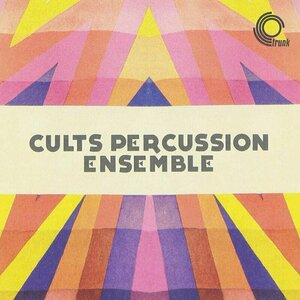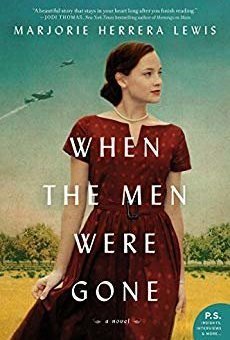
When the Men Were Gone
Book
A cross between Friday Night Lights and The Atomic City Girls, When The Men Were Gone is a debut...
WWII WW2 World War 2 World War II football Texas
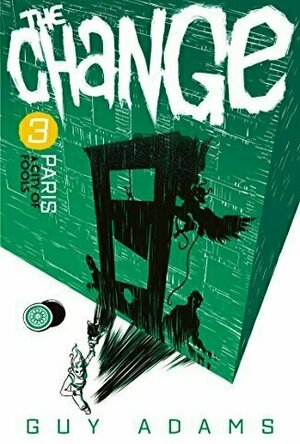
The Change 3: Paris: A City of Fools
Book
WHERE WERE YOU WHEN THE WORLD CHANGED? Loïc’s friend Adrien is gone, kidnapped by the...
Heather Cranmer (2721 KP) rated When the Men Were Gone in Books
May 20, 2019
Tylene Wilson loves football. In fact, football is all she's ever really known since she was a very little girl thanks to her father. When both male football coaches for the high school she works at go off to war in the Autumn of 1944, she desperately tries to find another male coach to take the job. If she doesn't, the Brownwood Lions football season will be over before it even began, and all the senior boys will more than likely end up enlisted fighting in World War II. After struggling to find a suitable coach, Tylene decides to coach the football team herself. When word gets out that a woman will be coaching a football team, people in and around Brownwood let it be known that they are very opposed to the idea. Even Tylene's close friends snub their nose at the idea. People try to get the Brownood Lions' football season cancelled, but Tylene will not let that happen if she can help it. Will Tylene be able to convince everyone that a woman can coach football just as good as a man?
I found the plot for When the Men Were Gone to be solid. As I've stated previously, this book is based on a true story. I had never heard of Tylene Wilson until I read Marjorie Herrera Lewis' book. I found it extremely interesting to have a glimpse into what Tylene Wilson may have had to go through. Lewis does a fantastic job at imagining what Tylene's life was like and what life in the small town of Brownwood would have been like around 1944. I could not find any fault with the story telling. In fact, I felt like I was transported into the book and was amidst all the action watching the story unfold. I will admit that I did not understand most of the football jargon though, but that didn't really take too much away from the story. As with most historical fiction novels, there were no major plot twists, but all my questions were answered. There was not cliffhanger ending.
I enjoyed the character of Tylene. Lewis did an amazing job at making me feel as if I knew Tylene. At times, I felt like I was Tylene. I could feel how stressed she was at times and how much her students and football meant to her. Tylene was such a strong female character. I just loved her and her determination! Moose was another character I loved. I admired his loyalty even though he was aware of the backlash. Jimmy was another interesting character to read about. I was intrigued to read about his struggles to play football for a "lady coach." On one hand, he admired Tylene and knew that she knew her stuff when it came to football. On the other hand, he was still a teenage boy open to peer pressure living in a time when woman were doing the traditional roles.
The pacing for When the Men Were Gone starts out a bit slow. There were a bunch of character names thrown out in the first few chapters which left me feeling confused about who was who. However, I quickly caught on, and the pacing picked up decently.
Trigger warnings for When the Men Were Gone include sexism, bigotry, misogyny, drunkenness, and some war violence.
All in all, When the Men Were Gone is a short read that packs a huge punch! Based on a true story, this novel has a fantastically strong female lead and plenty of drama that will definitely keep its reader hooked. I would definitely recommend When the Men Were Gone by Marjorie Herrera Lewis to those aged 15+ who enjoy football and love a story with a very strong female lead. I would give this book a 4 out of 5.
--
(Thanks to the Marjorie Herrera Lewis for providing me with a paperback of When the Men Were Gone in exchange for an honest and unbiased review.)
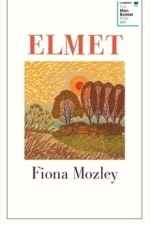
Elmet
Book
Daniel is heading north. He is looking for someone. The simplicity of his early life with Daddy and...
Literary Fiction
Leanne Crabtree (480 KP) rated Immortal City in Books
Jan 11, 2021
I liked the twists and turns in the story. You think it's going to go one way and then you realise it's a premonition and that the course of the vision can be changed. Very interesting concept in this series and I can't wait to read the rest of it.

Mystery in the Channel
Book
Mystery in the Channel is a classic crime novel with a strikingly modern sub-text. The story begins...
Sean Lennon recommended Cults Percussion Ensemble by Cults Percussion Ensemble in Music (curated)
Hazel (1853 KP) rated Who Runs the World? in Books
Dec 17, 2018
<i>This ARC was provided by the publisher via NetGalley in exchange for an honest review </i>
What would the world be like if there were no men, only women? Would it be an idyllic, peaceful planet, where compassion and courtesy are more important than money and owning commodities? A world without war, without crime, without weapons? Global agreements with everyone working together and not for personal gain? Endangered animals suddenly thriving in a landscape no longer inhabited by poachers? Perfect, perhaps? <i>Welcome to the Matriarchy.</i>
<i>Who Runs the World?</i> by Virigina Bergin explores the concept of growing up in a world with no men. Sixty years previously, a virus wiped out anyone with a Y chromosome (i.e. men), leaving women to pull together to survive in a dystopian world. River, aged fourteen, has never met a boy, and never expects to – they are as rare as unicorns. Conditioned to believe that men used to be monsters whose only aims were to rape, harm and kill, River believes the world is a faultless society. But, then she meets Mason.
Mason is a similar age to River, but has a distinct difference – he’s a boy. After escaping from a sanctuary – something River never knew existed – Mason has been on the run, seriously ill, but, amazingly, not dying. Despite the initial antagonism between the two characters – after all, they have both been conditioned to believe the opposite sexes are dangerous predators - River and Mason quickly discover that the older women in power have been hiding secrets from the rest of the world.
For six decades, men have lived in sterile sanctuaries, isolated from the deadly virus and the rest of the world. Their purpose is to produce sperm to be used in IVF in order to keep the human population going – obvious when you think about it. Yet, there is clearly an ulterior motive amongst the women in charge, for why else would they keep the male existence secret and teach young girls that men were monsters?
As River and Mason try to come to terms with the hidden truth, events begin to unravel the harmony of the Matriarchy. Perhaps an all female world would not be so perfect after all.
Initially, the tranquil civilisation Bergin creates feels false, a mockery of today’s politics. It is almost like feminism gone too far, claiming that men are the reason for the suffering in today’s world. True, women are still oppressed by their male counterparts, but the generalization that this is a result of ALL men, is a stretch too far. Once the truth about the situation begins to break through, it becomes more acceptable, more realistic even, given the corrupt society we are used to.
But Bergin has a point, how would the world survive if there were no men? For all we know, a deadly virus could rid the world of XYs, leaving women to piece everything back together. What the author is trying to point out is that women CAN be as powerful as men. Women deserve to be part of politics, of decision making, to have equal rights. Despite the initial suggested perfection, Bergin is showing that women are as capable as men, not better or worse.
Targeted at young adults, <i>Who Runs the World?</i> is written in a way that current readers can relate to, but not in ways one may expect. References made by or about the older generation are much more significant than the life and experiences of River, for it is these women that were alive at the beginning of the 21st century. These women were us.
An innovative novel from an up-and-coming British author, <i>Who Runs the World? </i>will make you think about the future as well as open your eyes to the discrimination of the present. It is a very interesting concept with the potential to be followed up with further novels, or left to the reader’s imagination.
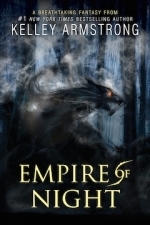
Empire of Night (Age of Legends, #2)
Book
SISTERS MORIA AND ASHYN ARE THE KEEPER AND SEEKER OF EDGEWOOD. OR AT LEAST, THEY WERE. Their...
fiction fantasy teen
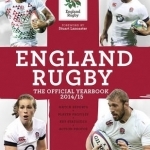
England Rugby: The Official Yearbook 2014/15
Book
England Rugby has every reason to be excited about 2015. As hosts of the IRB Rugby World Cup and...

